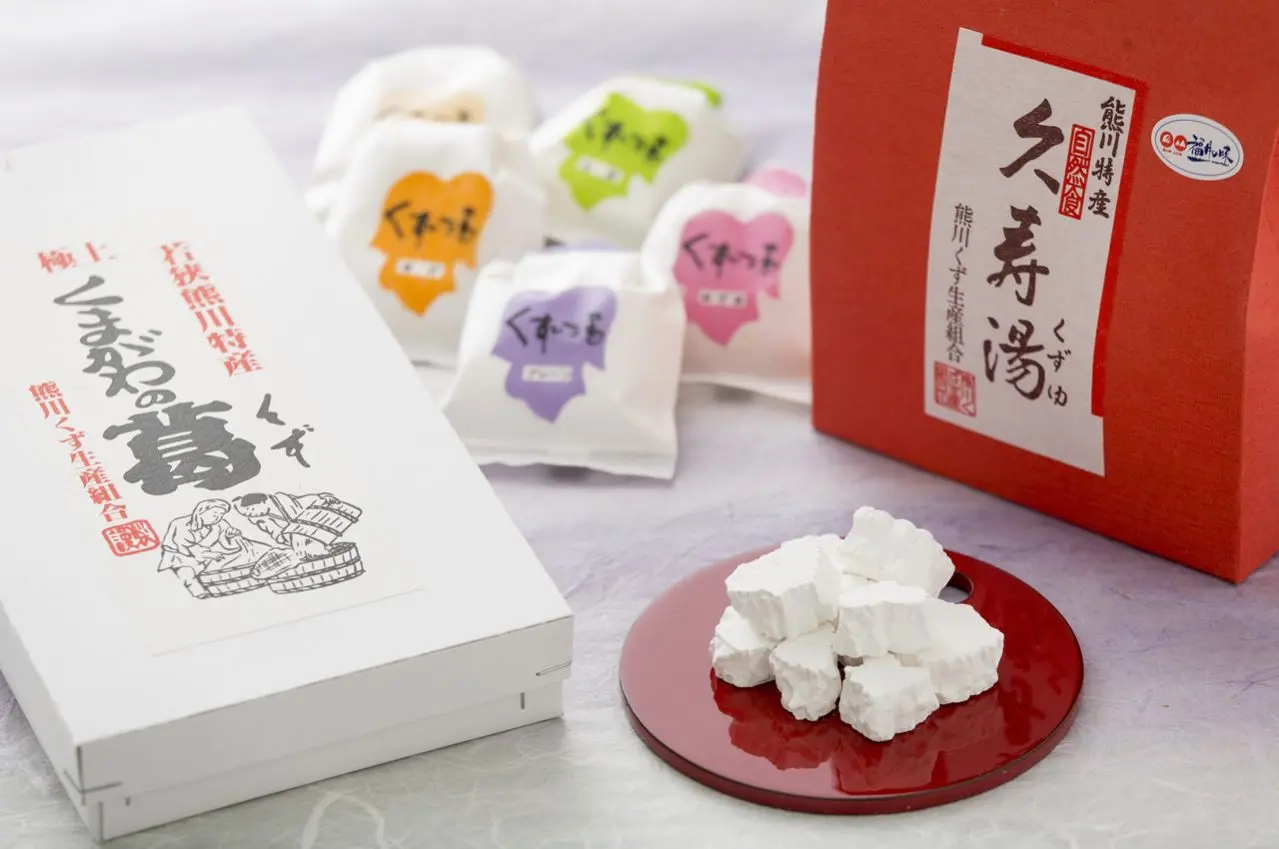Kumagawa Kudzu
One of Japan’s three finest kudzus, hailing from Wakasa
Kumagawa Kudzu introduction
Kumagawa Kudzu (熊川くず, Kumagawa Kuzu) has long been cherished for its exceptional quality, earning high praise even from the Edo-period scholar Rai Sanyo, who described it in a letter as "more refined than Yoshino kudzu, with superior preparation." The raw material for Kumagawa Kudzu is the root of wild kudzu plants that thrive in the upper reaches of the Kitagawa River, which flows into Wakasa Bay. The local soil is perfectly suited for growing high-quality kudzu roots that boast a high starch purity. To prevent starch fermentation, a traditional refining process called “kansarashi” is used. This involves washing the kudzu repeatedly in the icy spring water from mountain streams during the cold months of November to March. The result is a pristine white and pure kudzu of unmatched quality. Ranked alongside Yoshino Kudzu and Akizuki Kudzu as one of Japan's three finest kudzus, Kumagawa Kudzu is cherished for its smooth texture and delicate flavor. A popular summer delight made with Kumagawa Kudzu is "kuzu manju," a refreshing treat that embodies the taste of the season.
Related videos
Other information
- NameKumagawa Kudzu
- Area Fukui
- Kind of food Local cuisine
Fukui Other recommended dishes
Local cuisinerelated dishes
Kind of food
Tenpura Sushi Ramen Seafood Soba & Udon Okonomiyaki & Takoyaki Bento & Onigiri Don dish Nabe dish Yakitori & Kusiyaki Meat dish Local cuisine
